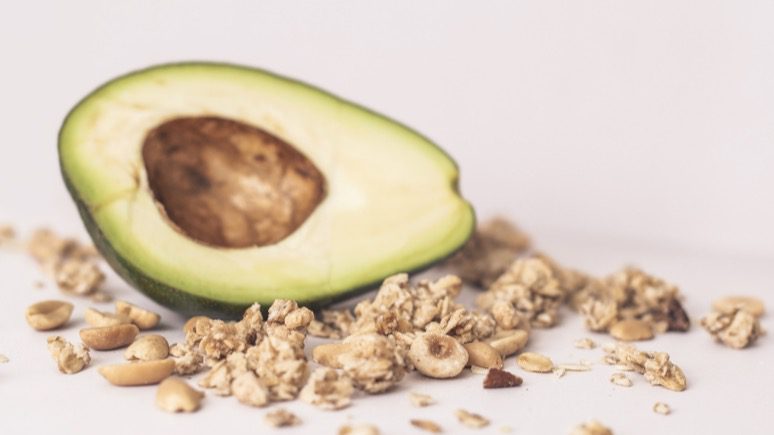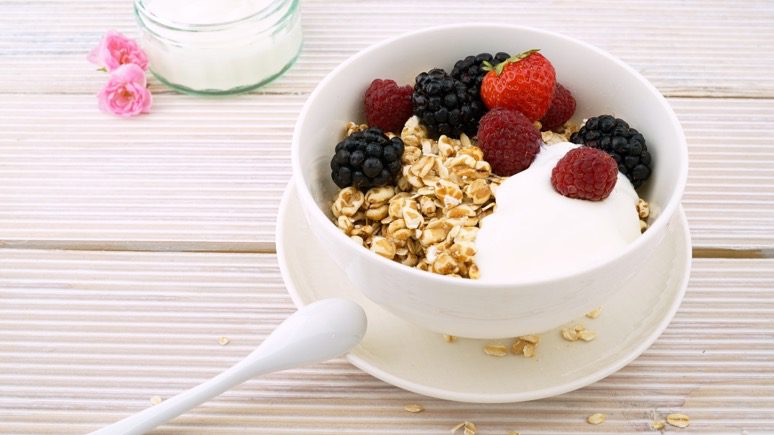Diets


August 7, 2022













0











0
Mediterranean Diet
By Editorial Team (A)
People living in countries like Spain, Italy, Greece, and Turkey tend to have a lower incidence of chronic diseases and higher than average life expectancy. Diet is believed to be one of the main reasons for this.
The Mediterranean diet is based on the eating habits of people who live near the Mediterranean Sea. It consists primarily of fruits, vegetables, grains, olive oil, legumes, seeds, and nuts with moderate consumption of fish, seafood, poultry, dairy products, and wine. Sweets and red meat are eaten occasionally. The Mediterranean diet is associated with a lower risk of heart diseases, type 2 diabetes, obesity, and some types of cancer. In addition, researches show that this nutritional approach has beneficial effects on aging and cognitive function. For example, the Mediterranean diet can reduce the risk of developing age-related cognitive decline, dementia, and Alzheimer's disease. This eating pattern is linked with improvements in cognitive function, attention, memory, and processing speed in older people.
The Mediterranean diet is based on the eating habits of people who live near the Mediterranean Sea. It consists primarily of fruits, vegetables, grains, olive oil, legumes, seeds, and nuts with moderate consumption of fish, seafood, poultry, dairy products, and wine. Sweets and red meat are eaten occasionally. The Mediterranean diet is associated with a lower risk of heart diseases, type 2 diabetes, obesity, and some types of cancer. In addition, researches show that this nutritional approach has beneficial effects on aging and cognitive function. For example, the Mediterranean diet can reduce the risk of developing age-related cognitive decline, dementia, and Alzheimer's disease. This eating pattern is linked with improvements in cognitive function, attention, memory, and processing speed in older people.
Read more


August 7, 2022













0











0
Lactose-Free Diet
By Editorial Team (A)
About 36% of the United States population has lactose intolerance. Such people cannot digest lactose - sugar present in milk. As a result, individuals with lactose intolerance experience unpleasant symptoms like bloating, stomach pain, and diarrhea after eating milk or dairy products.
The lactose-free diet, also called the dairy-free diet, is an eating pattern that excludes foods containing lactose. It is recommended for people with lactose intolerance, milk allergy, or other sensitivity to dairy products. In addition, some studies associate the consumption of dairy products with a higher risk of acne development.
Read more


August 7, 2022













0











0
Pescatarian Diet
By Editorial Team (A)
Fish is one of the healthiest foods on the Earth. It provides our body with essential nutrients such as quality protein, vitamin D, iodine, omega-3 fatty acids, and others. The Dietary Guidelines for Americans recommend eating eight to ten ounces of seafood per week to meet body requirements and promote health benefits.
The pescatarian diet is a type of vegetarianism that excludes poultry and meat but allows the consumption of eggs, dairy, fish, and seafood. Compared with other types of vegetarian diets, this one allows more protein options to fulfill your daily requirements.
A well-balanced pescatarian diet has a beneficial impact on the human body. People practicing this nutritional approach tend to be thinner and have a lower risk of type 2 diabetes, heart diseases, and cancers that affect the colon and rectum. In addition, all types of vegetarian diets are considered more environmentally friendly.
Read more


August 7, 2022













0











0
Low-fat Diet
By Editorial Team (Y)
Nowadays, many people who want to lose excess weight choose diets with lower fat content. One of such meal plans is a low-fat diet that limits the amount of consumed total fat, saturated fat, and cholesterol. It aims at reducing the incidence of health conditions like obesity and heart diseases. The low-fat diet is also beneficial for people with congenital metabolic syndrome, seizures, and those at risk of certain cancer types.
Read more


August 7, 2022













0











0
Ovo-Vegetarian Diet
By Editorial Team (A)
Have you ever heard about Meatless Monday? It is an international project that encourages people to avoid eating meat on Mondays to improve their health and help the planet. Statistics show that about 1/3 of people who continually participated in Meatless Mondays subsequently became vegetarians. There are different types of vegetarians, including vegans, ovo-lacto-vegetarians, ovo-vegetarians, lacto-vegetarians, pescatarians, and flexitarians.
The ovo-vegetarian diet is a type of vegetarian diet that avoids consuming all food derived from animals except for eggs and egg products. In addition, ovo-vegetarians usually choose humanely sourced eggs and egg products.
A well-balanced ovo-vegetarian diet has many health benefits, including improved heart health, reduced risk of heart diseases, type 2 diabetes, and cancer, improved insulin sensitivity and better blood sugar control in people who already have type 2 diabetes. In addition, an ovo-vegetarian diet, similarly to other vegetarian diets, support gut health and may promote healthy weight loss.
Read more


August 7, 2022













0











0
Ketogenic Diet
By Editorial Team (Y)
A ketogenic diet is high in fats, moderate in proteins, and low in carbohydrates. Carbohydrate intake is drastically reduced and replaced with fat in this diet. As a result of the reduction in carbs, your body enters a state called ketosis. In a ketosis state, your body becomes remarkably efficient in burning fat to produce energy. In addition, it converts fat into ketones in the liver, which can provide energy to the brain.
This diet is used predominantly for treating children with refractory epilepsy (it is the hard-to-control type of epilepsy). The ketogenic diet is also efficient in weight loss, improving type 2 diabetes, metabolic syndrome, heart disease, Alzheimer's disease, Parkinson's disease, certain types of cancer, polycystic ovary syndrome, and brain injury outcomes.
Read more


August 7, 2022













0











0
Lacto-Vegetarian Diet
By Editorial Team (A)
Vegetarianism is not a new concept. People have been practicing this nutritional approach since ancient times. Interestingly, recent studies suggest that Neanderthals from some regions in Spain were vegetarians.
The lacto-vegetarian diet is a type of vegetarian diet that avoids the consumption of eggs, poultry, meat, and seafood. However, this diet allows eating dairy products, including cheese, milk, yogurt, kefir, etc.
A well-balanced lacto-vegetarian diet promotes some health benefits, including heart health improvement and decreased risks of heart diseases, type 2 diabetes, and cancer. In addition, shifting to a lacto-vegetarian diet may aid in weight loss.
Read more


August 7, 2022













0











0
Lacto-Ovo-Vegetarian Diet
By Editorial Team (Y)
Nowadays, many people entirely or partially refuse to consume animal-based products in their diet in order to improve their health or due to environmental or ethical reasons. Various diets include vegetarianism on some level. One of such diets is lacto-ovo vegetarianism, also known as ovo-lacto vegetarianism.
Lacto-ovo-vegetarian diet includes predominantly plant-based food intake, excluding fish, meat, and poultry, but including eggs and dairy products. In the name, the "ovo" part refers to eggs, and the "lacto" part refers to dairy.
This diet will benefit people with heart disease, high blood pressure, type 2 diabetes, and people at risk of gallstones or certain types of cancer.
Read more


August 7, 2022













0











0
Vegan Diet
By Editorial Team (A)
Nowadays, around 3-6% of the population in the US are vegans. Many famous people decided to stick to this lifestyle, including Benedict Cumberbatch, Beyonce, Bill Clinton, Jessica Chastain, Venus Williams, and others.
A vegan diet consists only of plants (for example, fruits, vegetables, grains) and foods derived from plants. People following this diet do not consume animal-derived food, including eggs and dairy products.
A vegan diet is rich in various essential nutrients like fiber, vitamin C, folic acid, magnesium, vitamin E, etc. At the same time, this nutritional approach reduces the consumption of saturated fats and cholesterol. As a result, people practicing a vegan diet usually have lower risks of type 2 diabetes, obesity, cardiovascular diseases, and some types of cancer. In addition, vegans tend to be thinner, so it can be advantageous if your goal is weight loss.
Read more


August 7, 2022













0











0
Caloric Restriction
By Editorial Team (A)
Nowadays, we live in times of food abundance in many countries. However, it appears that excessive food consumption can adversely impact human health. In contrast, eating less can prolong life.
A caloric restriction is a nutritional approach that reduces calorie consumption without causing malnutrition. This dietary regimen is recommended for people with diabetes or pre-diabetes and as a weight-loss tool for overweight and obese individuals. In addition, caloric restriction has been shown to slow the aging process and extend lifespan.
Read more










